Takeshi Yoro is an anatomist and he is also a smoker. He says he was 20 years old when he lit his first cigarette. Now, he smokes when he is deep in thought, absorbed in his writing, or in deep conversation with someone.
The smoke from cigarettes was always a part of his life.
What kind of enrichment did shikohin provide in the life of Takeshi Yoro, who is known as the “intellectual giant” in Japan? Now 86 years old, Takeshi Yoro spent his childhood in the midst of World War 2 and experienced all the changes in our society since. How does such a man understand shikohin and shikohin experiences?
We visited Takeshi Yoro in his mountain villa in Hakone at the beginning of autumn.
Takeshi Yoro sat in his living room chair, took out a cigarette from a tobacco tin and lit it with a lighter.
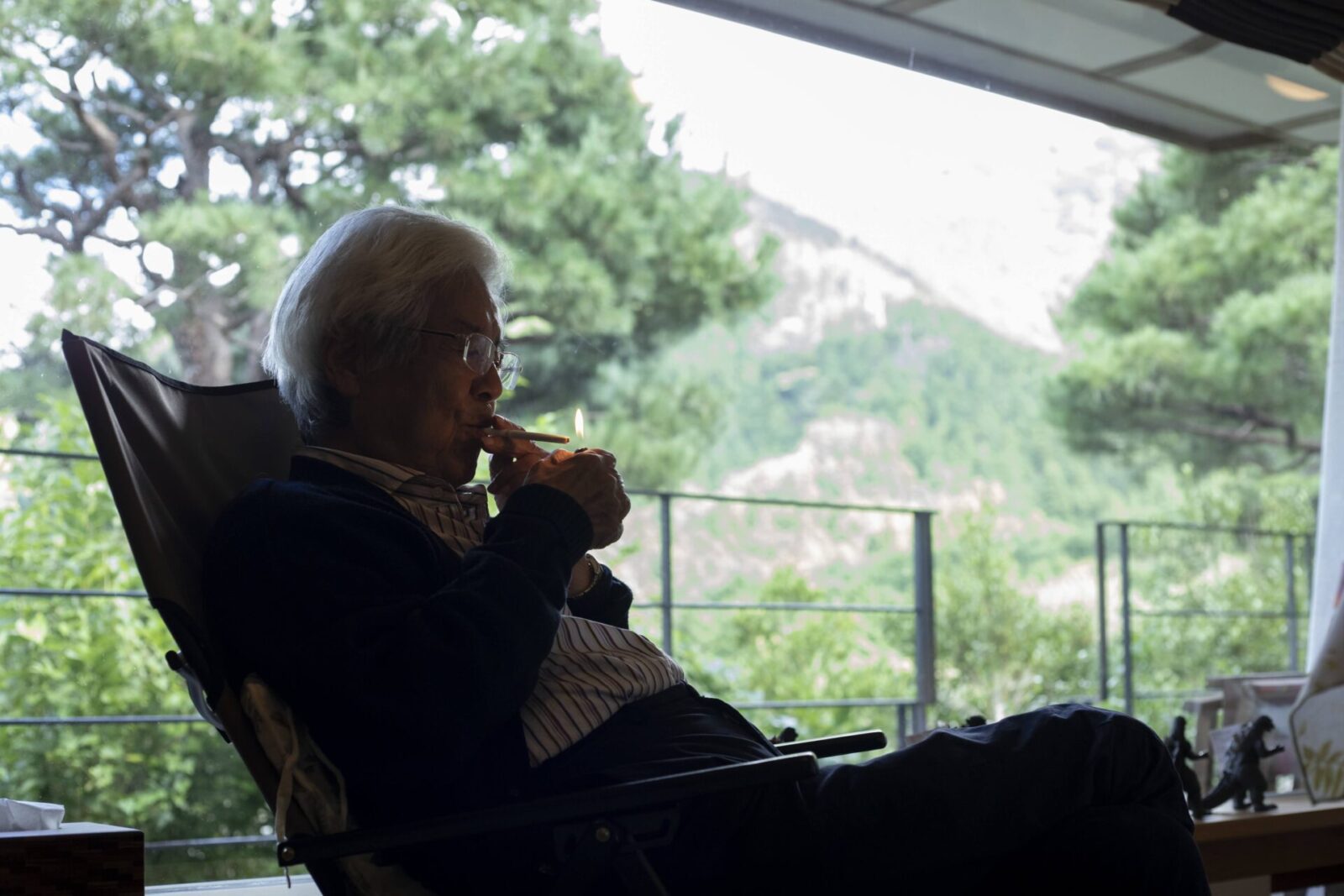
After taking a slow breath of smoke, he smiled faintly and said,
“Actually, I don’t think shikohin is something that should be discussed seriously.”
From the start, the DIG THE TEA team is caught off guard.
“I have no preference in which brand of cigarette I smoke. Whatever is fine as long as I can smoke. Shikohin is something that we can have in our lives or not. It’s fine either way. However…”
After a pause, he continues,
“When something that we should be fine with or without becomes something that is prohibited, it can be dangerous. Shikohin used to be something that was more light-hearted. When we start thinking of it too seriously and over emphasizing its importance, a kind of danger arises.”
The “intellectual giant” smoked a cigarette as he began talking about the essence of shikohin and individuality.
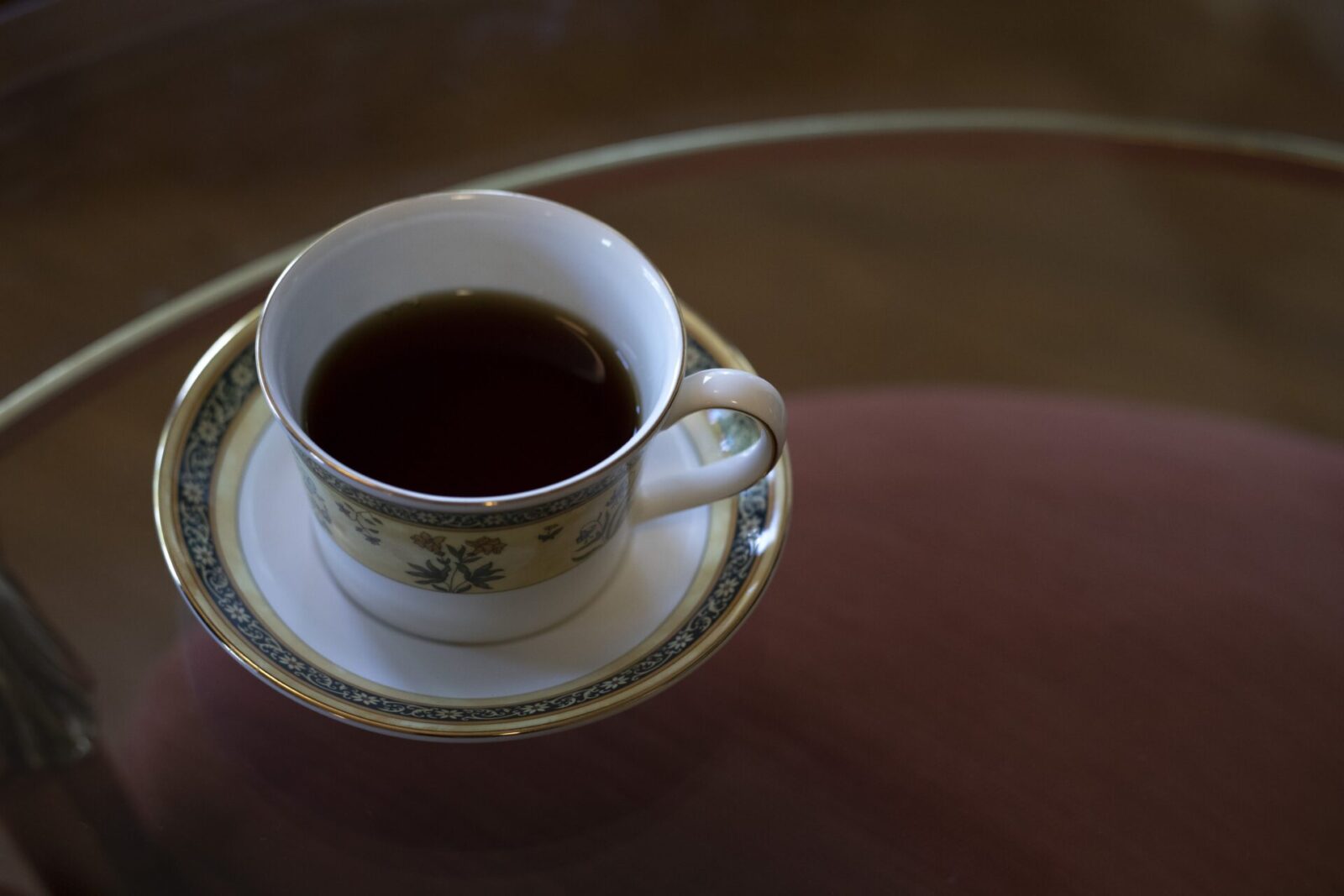
#Series “To Live, To Relish”
For our series, “To Live, To Relish,” we will explore what shikohin and its experiences mean to us in our modern world, and interview leading researchers, anthropologists, historians, and more.
Shikohin is something that we consume that may not have any nutritional value or benefit in sustaining our bodies.
Even though it is not a necessity to sustain life, shikohin is enjoyed in various ways around the world.
Perhaps shikohin is rather a necessary part of what makes us human.
Shikohin used to be taken light heartedly
── It is well known that you are an avid smoker.
I started smoking when I entered university at the age of 20, so I have been a smoker for over 60 years. I came of age in 1957 and everyone in my family smoked.
In the past, smoking was not uncommon.
In the Showa era (1926~1989) we had ashtrays at our desks in the office and by the seats on buses and trains.
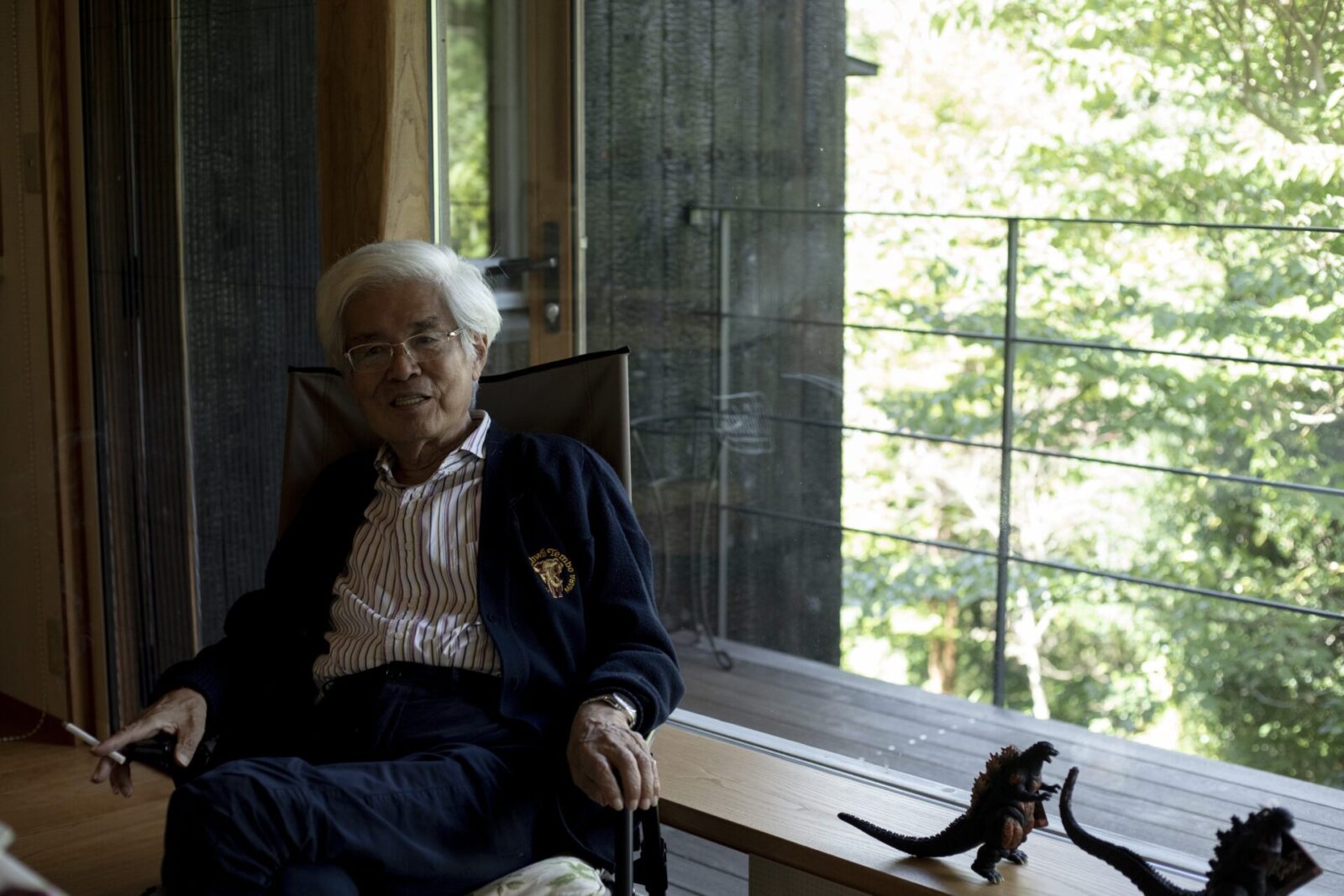
People often ask me what brand of cigarettes I smoke, but I am not particular about that.
As long as I have a cigarette in my hand and I can smoke it, anything is fine.
I was born before the Pacific War (1937) and grew up in extreme food shortages during and after the war.
As long as there is a cigarette available, that’s enough. For me, that is all I expect from a shikohin.
── Do you think the role of shikohin and shikohin experiences have changed with each generation?
I think that shikohin used to be taken more light heartedly.
Now it is taken a lot more seriously and it’s treated like a heavy topic.
I don’t like to take this topic and discuss it too seriously.
I feel that discussing it so seriously takes away from the light heartedness of shikohin and that doesn’t sit well together.
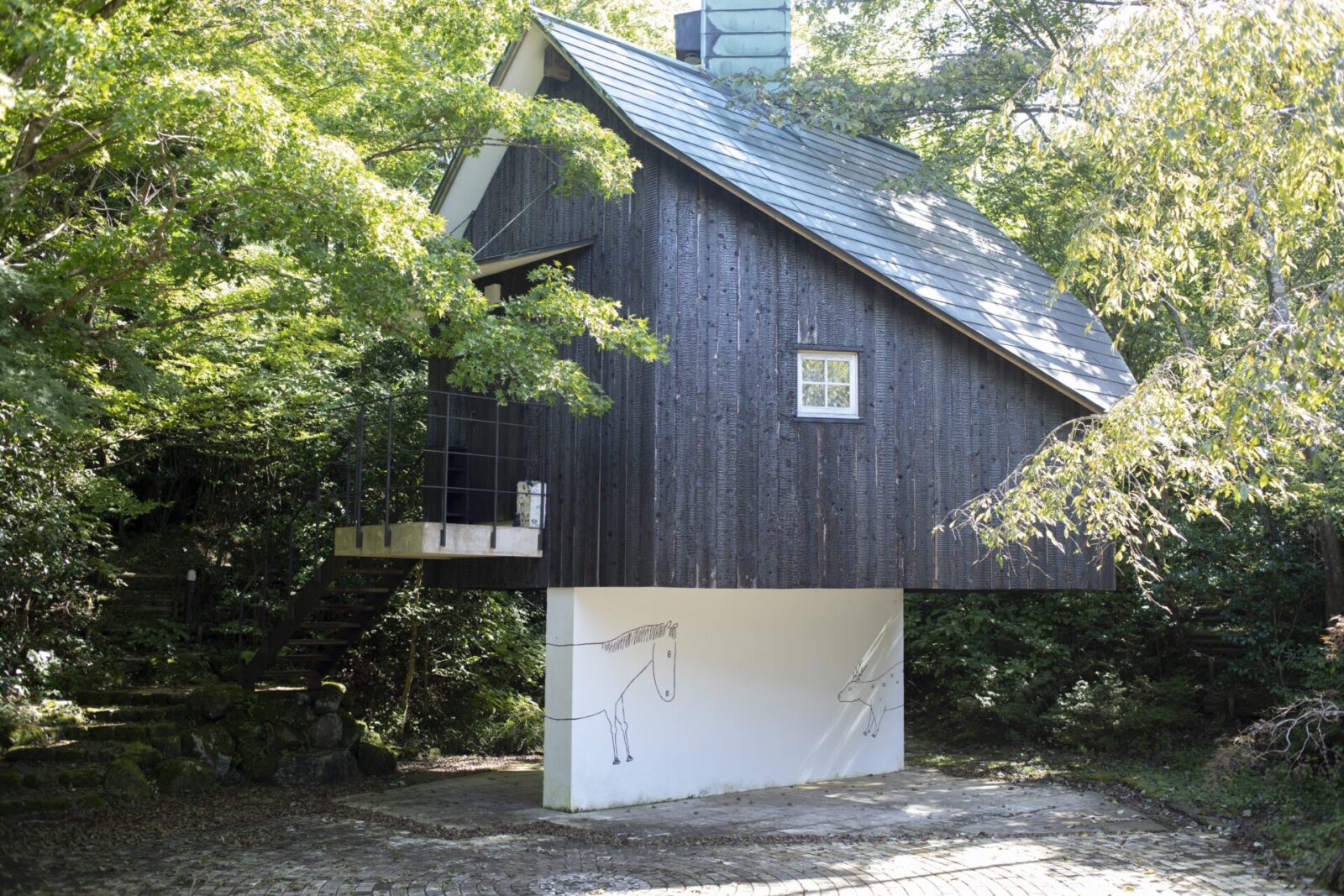
── As a team who has taken the exploration of shikohin very seriously, that is an eye-opening statement.
As you know, cigarettes are treated very differently in different countries.
For example, I recently visited Bhutan. Bhutan is a so-called “non-smoking country” and smoking in public spaces is not allowed.
Recently, more countries are tightening their restrictions on cigarettes.
Even in Japan the public’s opinion on smoking has become very different from what it was in the past.
I think this is related to today’s topic of discussion, but if you take something that is meant to be light hearted too seriously, it becomes heavy.
That is not an appropriate stance to have for shikohin, so today I hope to keep the conversation as light as possible.
──Indeed, shikohin has no nutritional value and is not a necessity in sustaining life.
Shikohin is something that we should be fine with having or not.
Whether it be alcohol or tobacco, a smoker or non-smoker, everyone should just do as they please.
Shikohin should not be such a big deal.
However, when shikohin becomes treated as something that should not be had, or is prohibited, it can be scary.
In fact, this is a very important point.
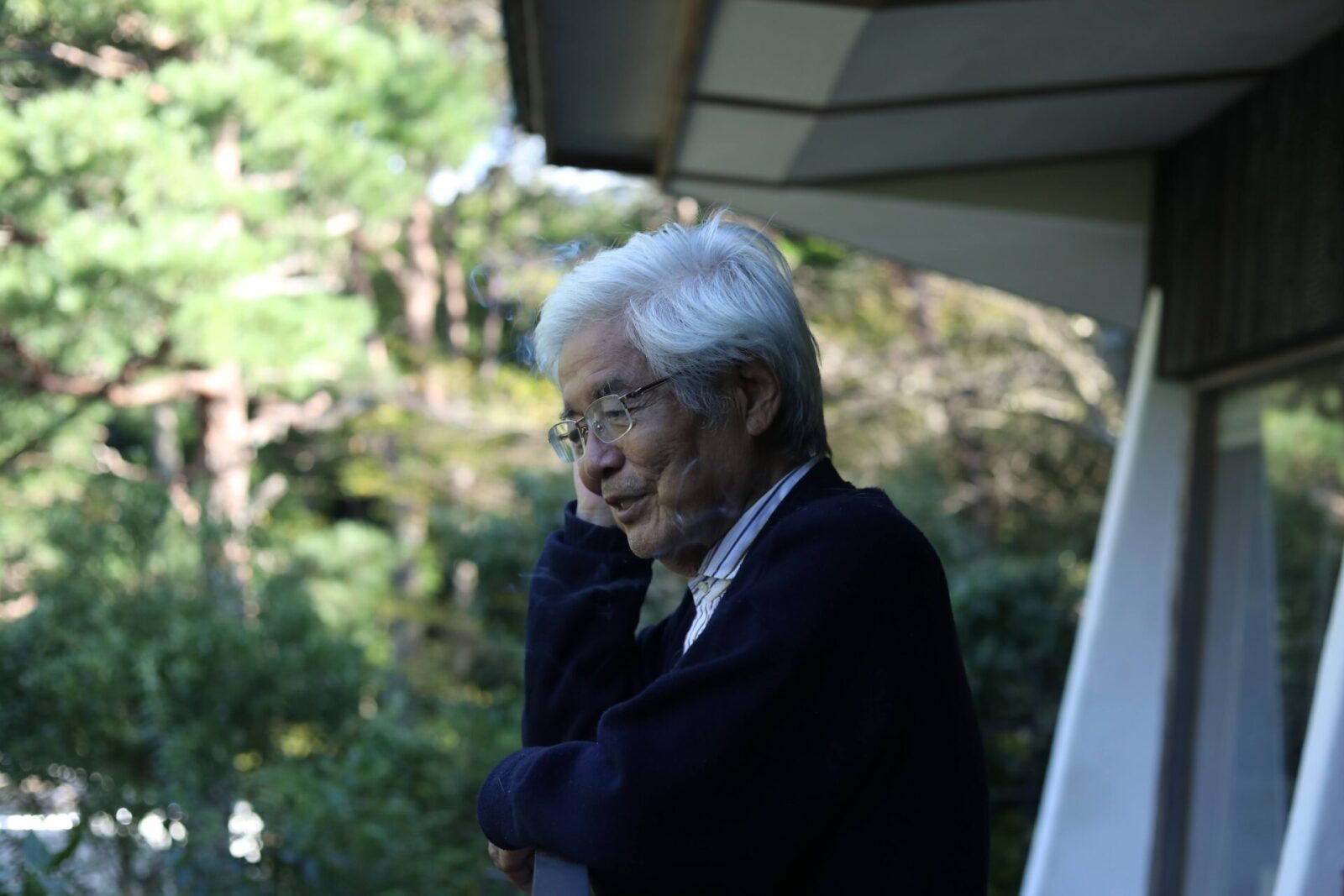
── Historically speaking, there have been times when shikohin went from being a choice to something that is prohibited.
The Prohibition Era (1920s) in the United States where alcohol was prohibited is an example.
The production and sale of alcohol was banned, but drinking alcohol itself was not.
No matter how many laws you create to prohibit the production of alcohol, there will still be people who want to drink it.
The mafia began to make a lot of money in the black market by making alcohol illegally, and people continued to drink alcohol in hiding.
Even with cigarettes, there is a famous example of the Nazis prohibiting smoking in order to make their citizens more “healthy” for the state.
── There is a big difference between something being prohibited and people being fine with being without it.
With alcohol and tobacco, it is up to the individual to choose to participate or not.
What kind of society are we idealizing when we prohibit drinking or smoking and force that upon other people?
There is the term “hodo-hodo”(ほどほど) in Japanese which means in moderation or “tekitou” (適当) which means in the appropriate amount.
Although these terms tend to be used in a negative context, it means that humans are not like computers and our existence should not be so rigid.
── Do you think that in today’s society we are losing the gray area between what we consider our personal shikohin experience and what makes other people’s shikohin experiences?
Yes, everything is circumstantial and is case by case.
A world that does not allow any room for error and forces us to “do the right thing” can be very stifling.
I feel that the modern world is becoming less tolerant of ambiguity.
I think it’s okay for society to be a more nonchalant place.
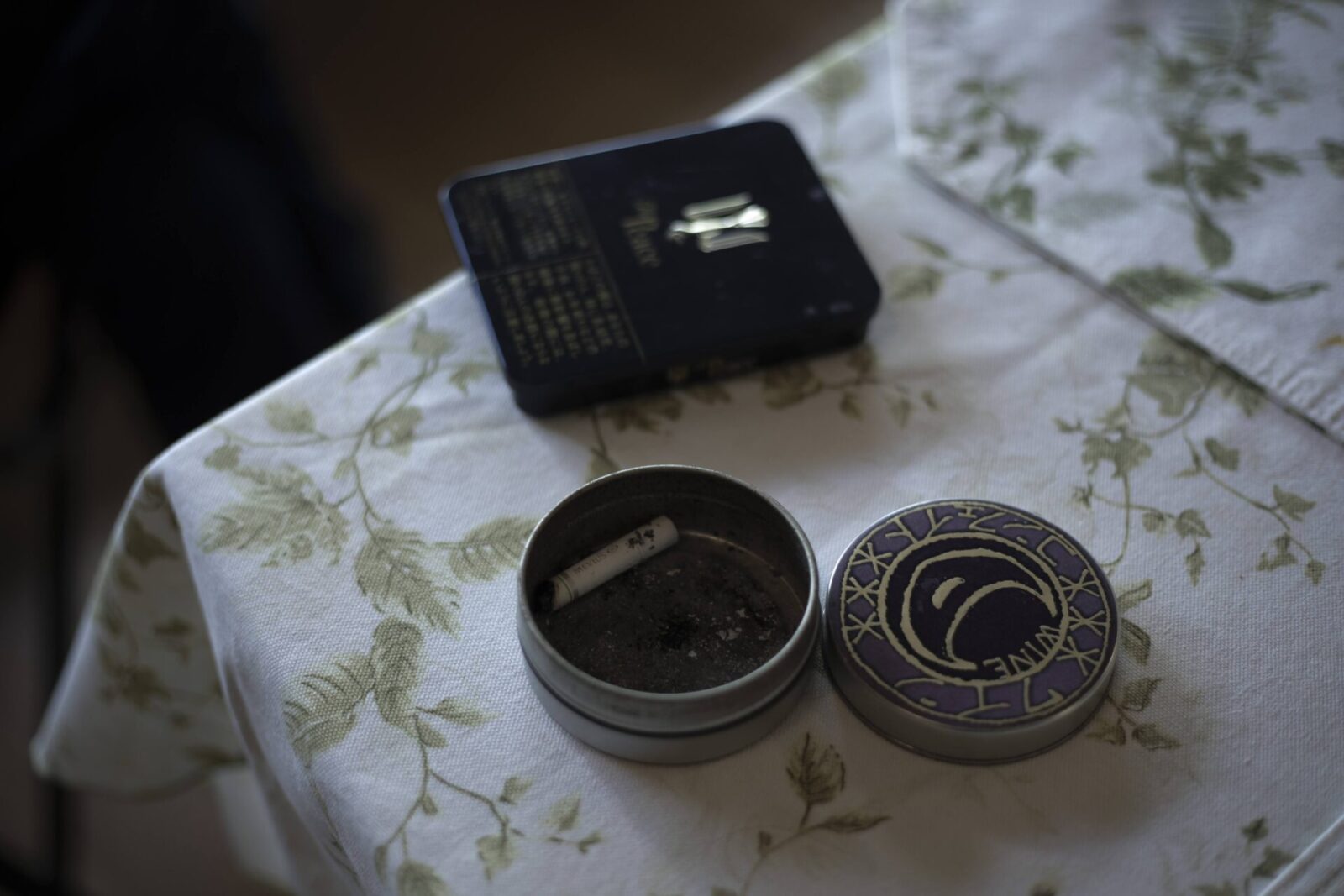
Is everyday food choices a shikohin or a part of individuality?
── I feel that an individual’s preferences and individuality is often expressed through shikohin.
Perhaps a lot of people see shikohin as an expression of individuality.
However, I see it differently.
There is an interesting book that helps us think about the difference between shikohin and individuality.
The book is Nobuko Iwamura’s “Eating Alone〜 The State of Individuals in Marginal Families”.
For this book Iwamura studied and recorded the meals of families through photographs and fixed point observation and followed up with how it influenced them ten and twenty years later.
In Family A the mother and two children would go to the convenience store together on weekends and holidays and dinner consisted of pre-made dishes that the children picked out themselves. If the children wanted breakfast they toasted bread on their own and ate it.
In Family B the children were given money to go and buy whatever they wanted to eat.
One thing both families had in common was that they believed that giving their children the freedom to choose whether to eat breakfast or not or what dishes they want to buy and eat from the supermarket was a way of respecting their individualism and independence. They wanted to value the children’s freedom of choice.
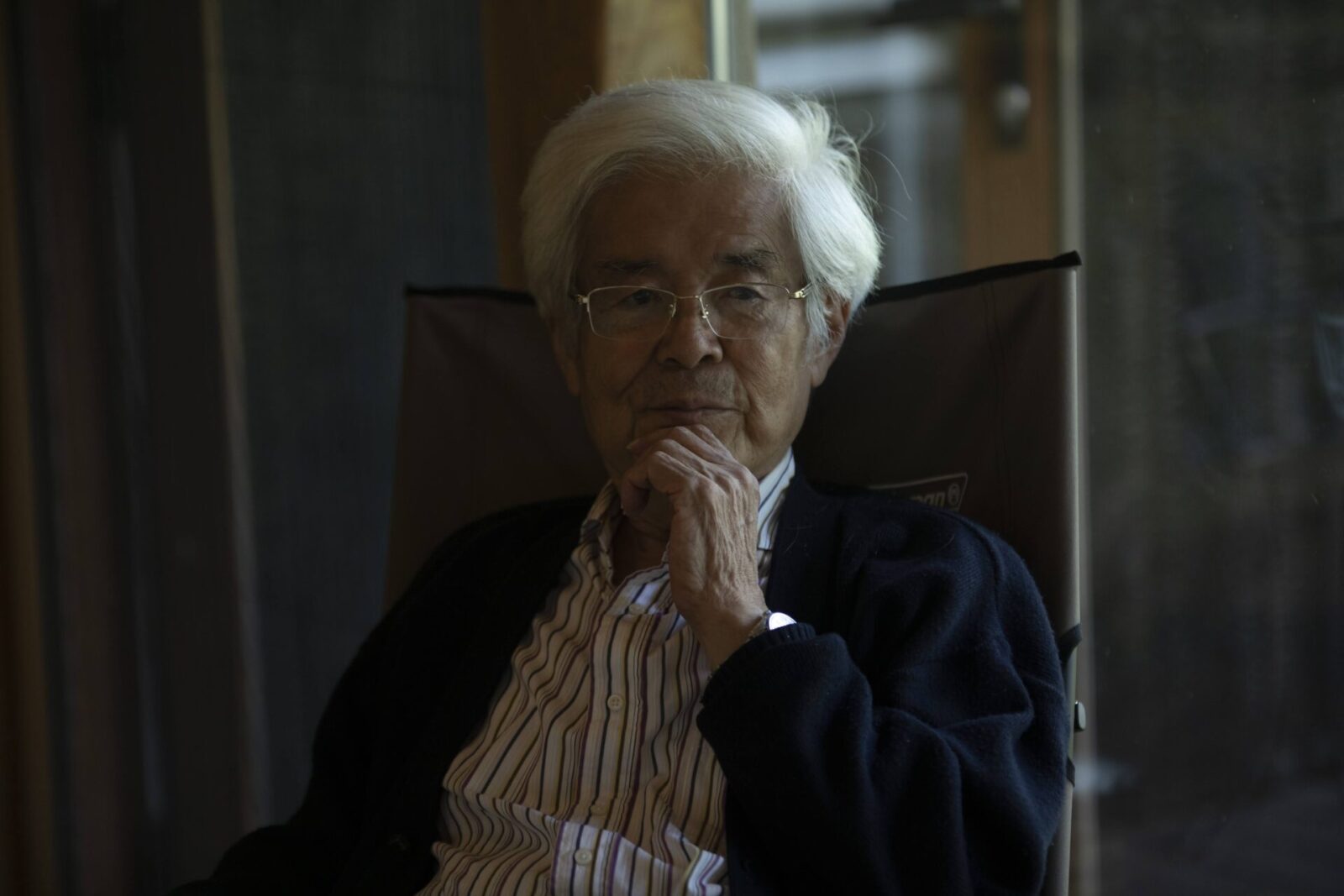
Ten years later, the children from family A had grown up into high school and university students, but neither of them helped out in the house.
The children spent their time working part time and eating out. As a result the parents did not know where or what the children were eating for their meals.
For Family B, ten years later everyone in the family continued to buy and eat what they wanted, whenever they wanted on their own.
However, the children’s health check up showed some problems and they felt anxiety over the state of their health.
── It seems the connection between family and meals was lost due to overly prioritizing individuality.
There was also Family C, whose family meals were the opposite of Family A and B’s style.
In Family C, the parents taught their children the proper way of using chopsticks and they did not allow cell phone use or TV during meal time.
The meals were not planned based on the children’s preferences and even if the children did not like certain foods, they continued to serve it.
Interestingly, ten years later the children from Family C preferred eating at home over eating out.
The mother made the meals for each family member and they ate together once everyone was home.
The relationship between the parents and children were good and they spent the weekends and holidays together, watching sports, going shopping or traveling together.
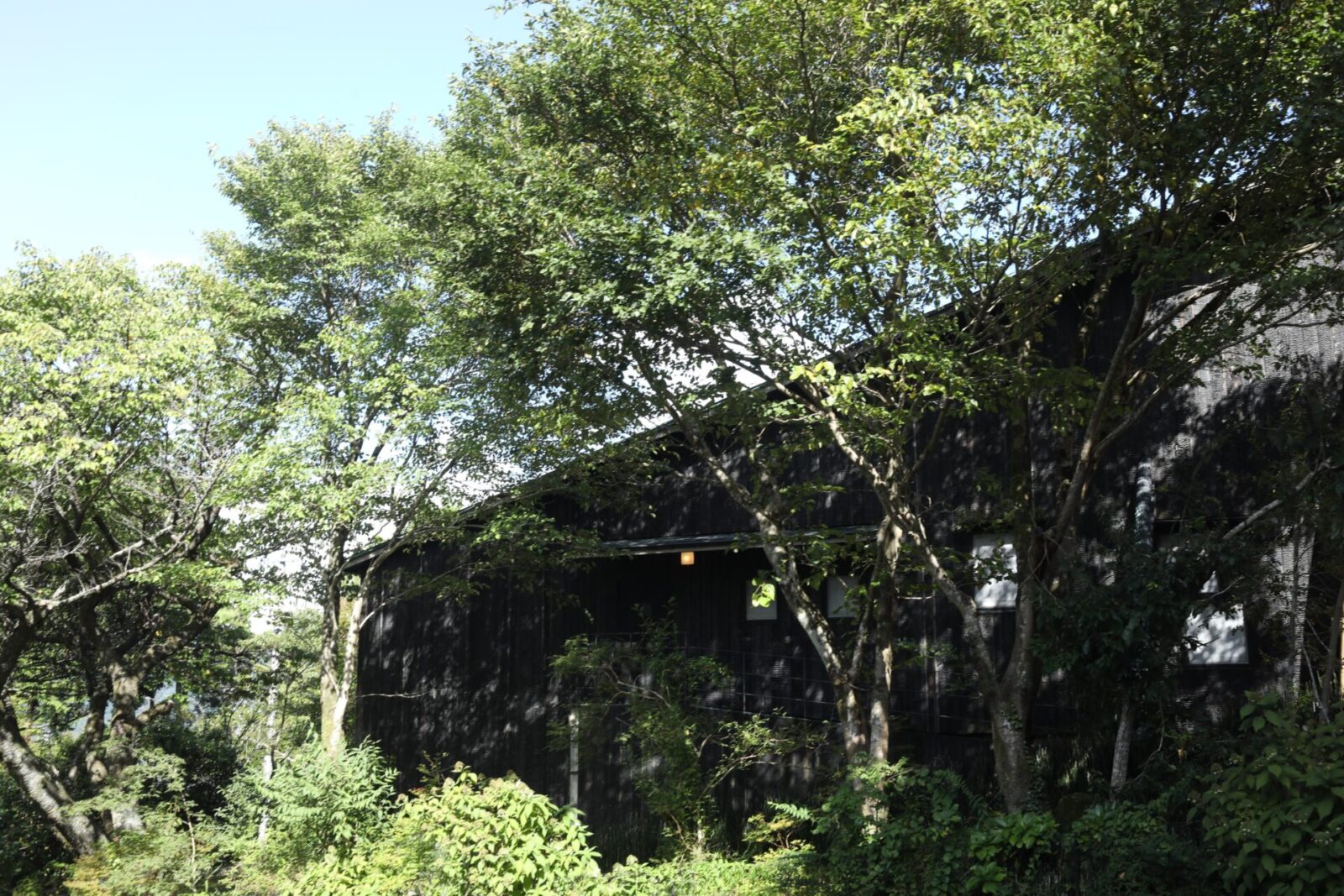
── Manners and how we spend our time at home is often shaped in meal time. Although most people are not as extreme Family A and B, their story demonstrates how our daily meals are now treated more like a shikohin of individual preference.
I think that how we understand the words individual and independence is different from its original definition and it is now interpreted as “not interfering with others” or “accepting a child’s likes and dislikes.”
However, what people feel like eating at the moment is only about their personal preferences in food and not about respecting individuality.
I don’t think food preferences have anything to do with the depth of an individual.

── Do you think that the meaning of individualism in the modern world is treated more lightly because it has been replaced by personal preference and taste?
Shikohin used to be taken more lightly.
Cigarettes were rationed during the war so no one cared about the brand.
I myself experienced food and supply shortages during the war.
We were thankful to have any food on the table and happy just having a cigarette to enjoy.
We appreciated alcohol when we could have it. That was how shikohin was in the past.
Why was this the case?
Because there were other, more heavy, things going on in our lives.
── What do you mean by heavy things?
In the generation I grew up in, there were more old customs and traditions, such as a patriarchal family and other societal constraints known as “shigarami” (しがらみ).
On the other hand, there were people who disliked such unintelligible rules and resisted them.
These people would not spend time at home, but would go out at night with their friends. In these environments, there were shikohin such as alcohol and tobacco and it was used as a way to escape reality or breathe a breath of freedom.
I think that shikohin and shikohin experiences were things that balanced the heavy weight of societal pressures and constraints.
However, such heavy constraints in society gradually disappeared from the world.
As a result shikohin, which used to play the role of making things lighter, turned into something that is treated more heavily.
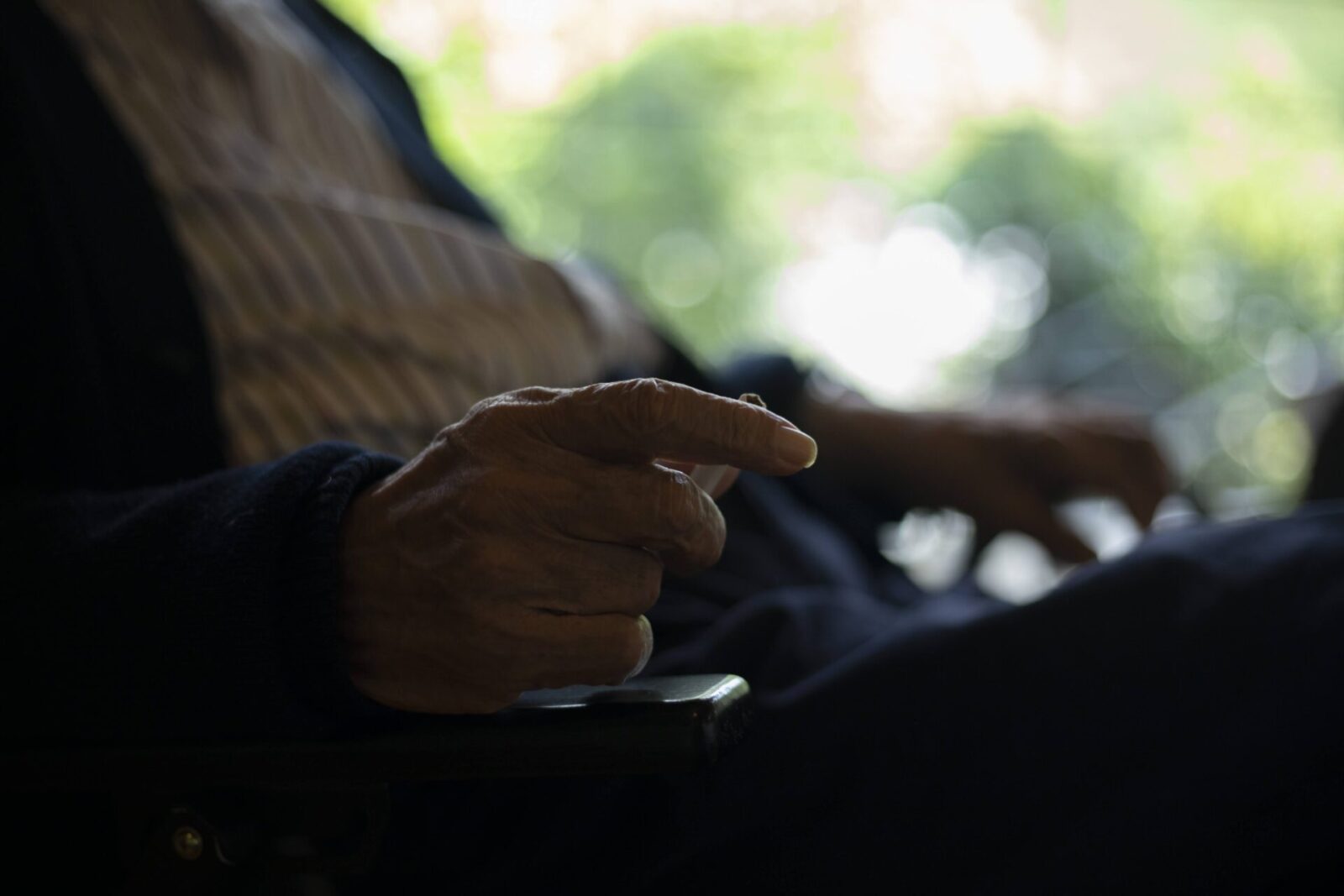
── What do you think happens when we start treating shikohin more heavily?
I think there is a certain danger that comes with it.
The movement toward banning smoking around the world is a part of it.
These days the idea that smoking in public spaces as bad etiquette has permeated across society.
Of course, I believe that it is bad etiquette and unpleasant if a smoker blows smoke toward the face of a non-smoker. That is not what I am talking about.
However, even though there are separated smoking and non-smoking areas, there are those who say that smoking should be banned everywhere.
A cigarette creates only a puff of smoke. I wonder why people make such a fuss over it.
By extension, this could lead to indiscriminate attacks on smokers.
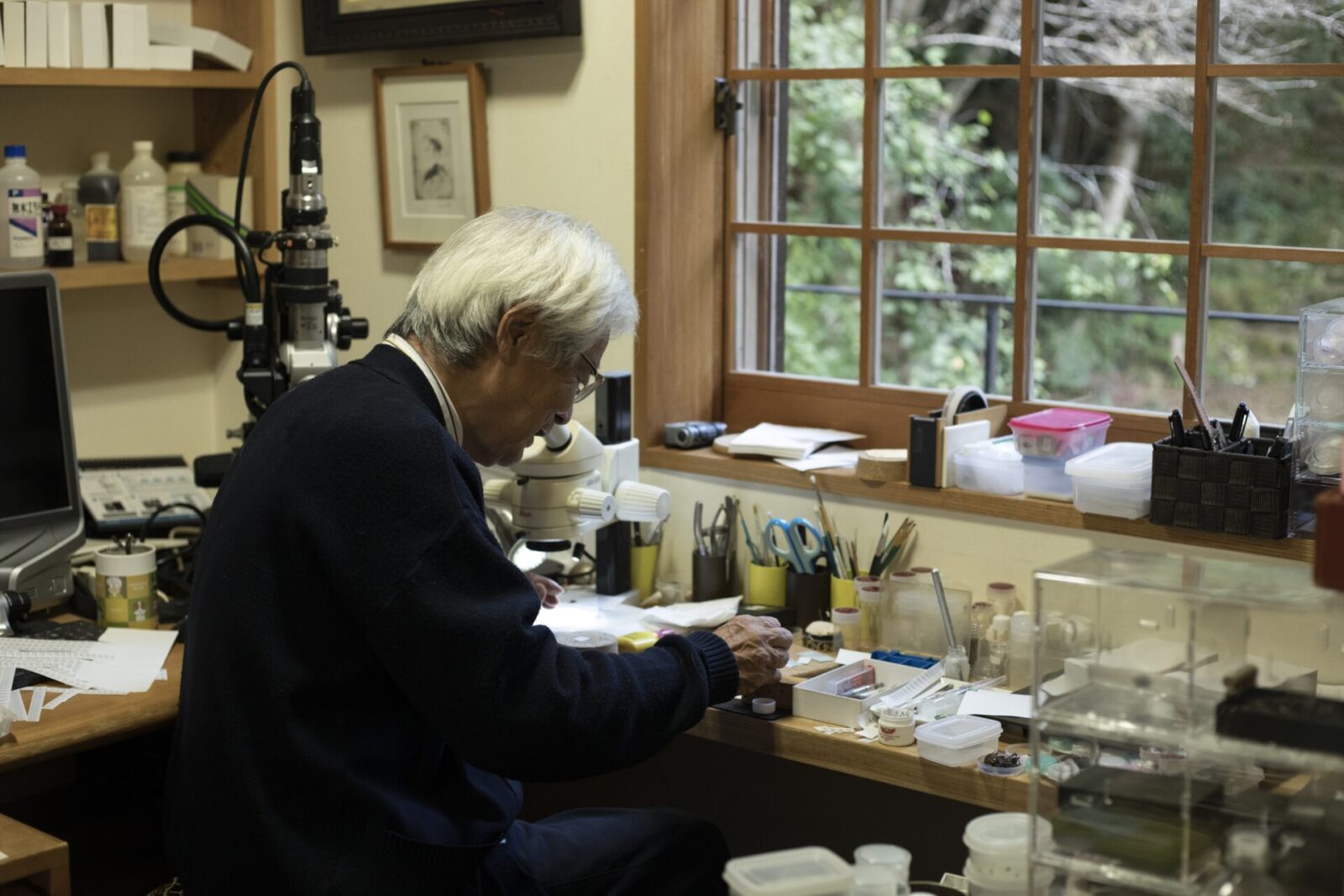
── So you think that interpreting shikohin too heavily can lead to its prohibition?
The understanding of individuality has changed a lot compared to the past.
If society continues to value individuality to this extent, perhaps the need for alcohol and tobacco will disappear in future generations.
I think shikohin played a role in the past because of society constraints.
Now, we have failed to really understand what individuality is and have come to think of it in simple contexts such as what we like to have for breakfast.
I think that is what is complicating the discussion.
In other words, we are struggling to find what really defines individuality today.
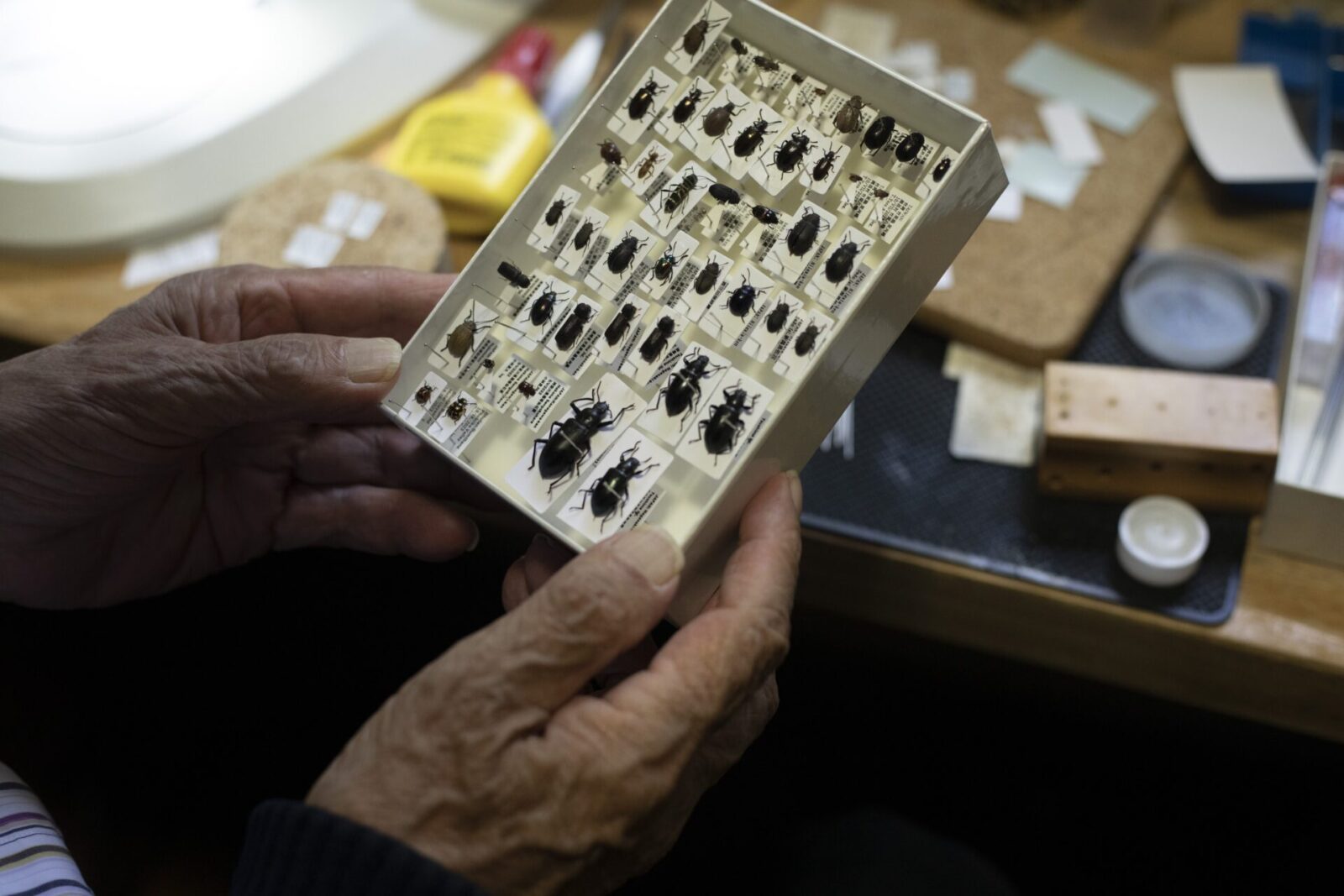
Unforeseen events are what resets and changes our interpretation of individualism
―― What can be done to reevaluate our understanding of individualism?
During and after the war, we all faced real crises such as food shortages.
There is no guarantee that we will not face similar crises in the world we live in today.
For example, the Nankai Trough Earthquake is predicted to occur with a probability of 70~80% in the next 30 years.
What would happen when such a large-scale disaster occurs?
── If distribution is disrupted, people living in urban areas may lose access to food.
That’s right. Additionally, what would happen if there was a global food crisis?
Japan is only 38% self-sufficient in food (on a calorie basis). For Tokyo, it is a mere 1%.
If distribution is disrupted or stops, food will not be delivered to people living in Tokyo, especially those who live in the central 23 wards.
There is a very real possibility for a country such as ours, with such a low food self-sufficiency rate, to face famine and starvation.
In other words, if such a major disaster were to strike, we would be forced to reset our current way of life.

Thinking about whether food tastes good or not, or shikohin experiences will not be a priority.
We will be asking ourselves whether we have enough food at home, what we can eat now, whether the tap water is safe or whether we can use the toilet or not.
I think these are very important questions when we think about the future of Japan.
── There are very few opportunities now to learn and experience how rice and other crops are cultivated and how the food that goes in our mouths is produced.
As urbanization and modernization progresses, the nuclear family has become more common and fewer people travel to the countryside to visit extended family on holidays. In fact, some people do not have a “countryside” to visit anymore.
Of course, it is not my intention to deny the urban lifestyle.
However, if a disaster or some unforeseen event were to “reset” our current way of life, urban lifestyle as it exists today would not be sustainable and there would have to be some major changes.
Rather than urban cities, I think it will be necessary to form small regional groups that are more self-sufficient.
Consequently, we will be faced with the question of the power of individuality and physicality.
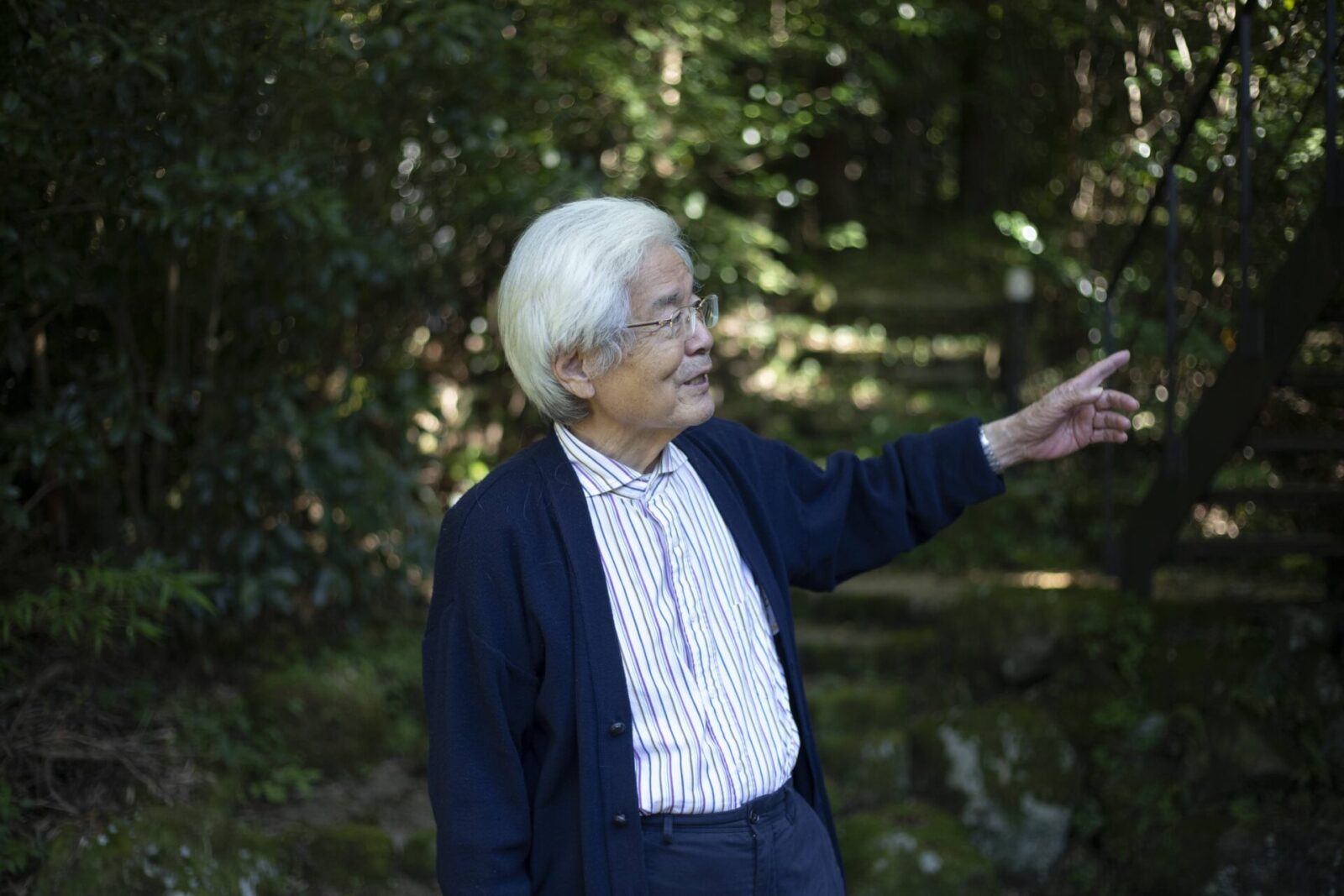
── The physicality of the individual in a small group?
It is possible that a disaster will create a situation where the individual will be forced to participate in a group oriented society in order to secure food and energy.
Of course, it will be impossible to provide the same quality and quantity of energy that is available today.
However, if the cities collapse due to an earthquake and people form small groups in order to survive, we should be able to produce enough for everyone to survive there.
In that case, what responsibility will each individual’s work have on the whole?
I believe this will lead to the understanding of what the word “individual” really means.
── Do you believe that will be the final understanding of what defines individualism?
I do. Individualism is not something that is compensated by the whole, but it is the individual that compensates to make society whole.
I think that the value of the individual will indeed grow in this way.
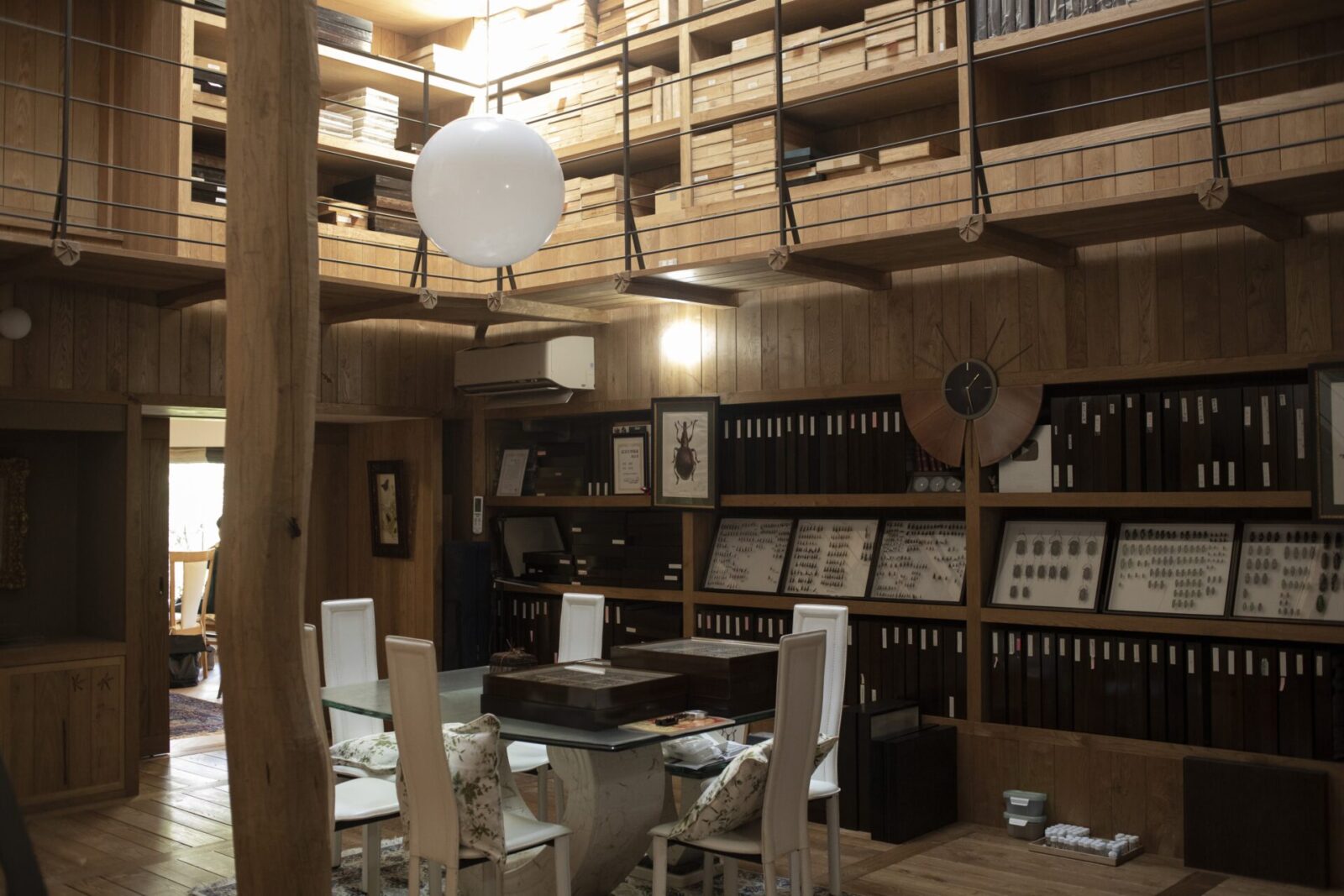
We are what we are meant to be
── Do you think that the idea of the individual cannot be separated from the idea of society?
Rice is grown in rice fields and harvested and this food makes up our bodies.
Our bodies and our “self” is connected to rice fields.
However, in today’s urban way of life, we do not have that sense of connection.
Rather than confining ourselves to our “individual” worlds, we should be connecting with the outside world.
There was a neuroanatomist who suffered brain hemorrhages and recorded the symptoms of his seizures.
According to his recordings, the first thing he felt was the sensation of turning into water.
He wrote that he felt as if everything was flowing into a fluid and he lost his shape and form as he became one with the world around him.
I think the expression of “turning into a fluid and melting into your surroundings” is very interesting.
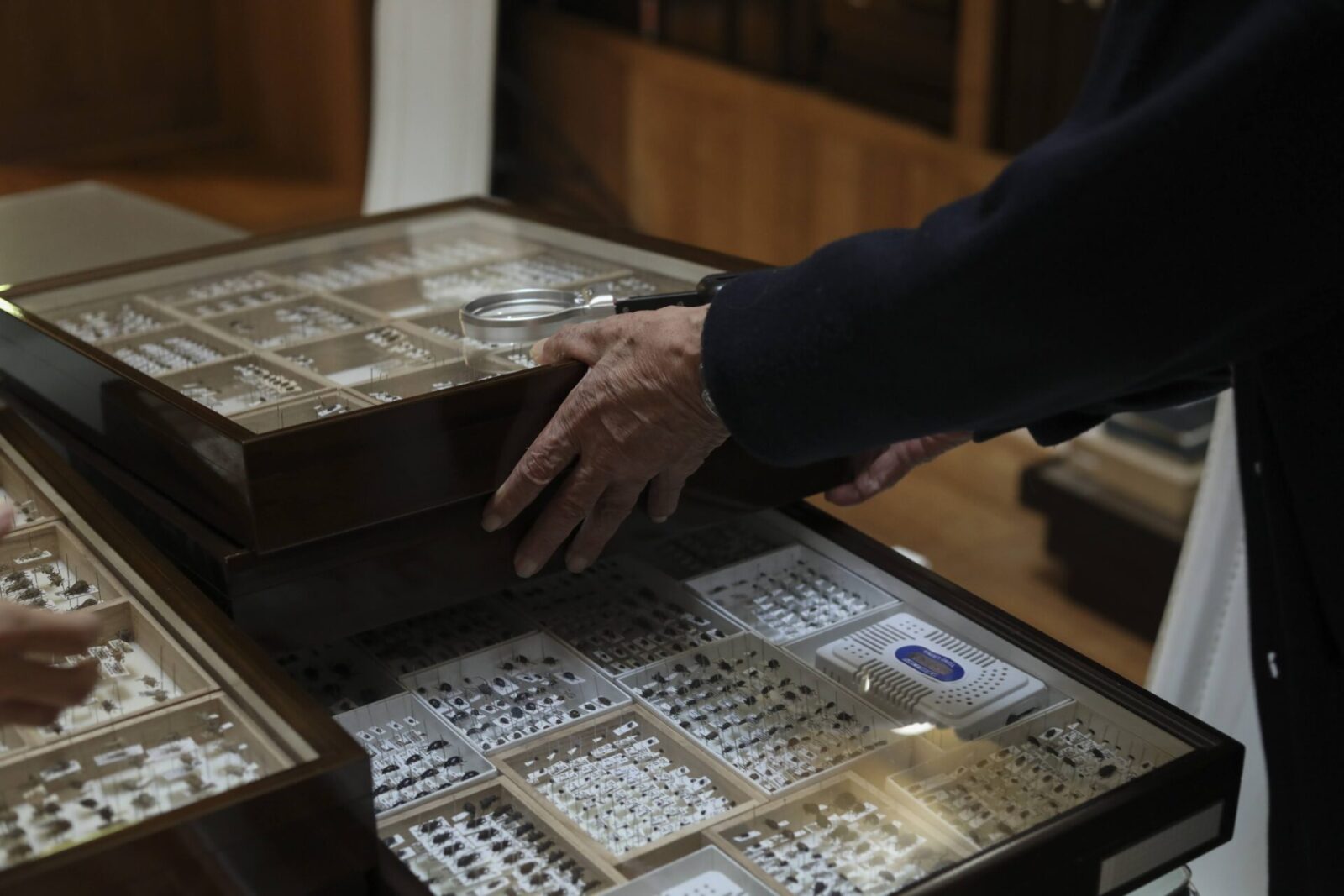
There is also a German philosopher that described “self” as a “tunnel”.
── A tunnel, as in something that is hollow inside?
The individual or self is something that is merely built by exterior walls.
The inside is empty.
In other words, I think it means that in essence, “self” does not exist.
── Individual or self does not exist but it is connected to the exterior and outside world?
As I get older, I have a growing understanding that “what will be will be” and that “things will be as it should be”.
I don’t have the physical strength I used to have.
My brain tires just by thinking. (laughs)
Surely by now you get my point.
The important thing is to not take your personal shikohin too seriously and make it heavier than it has to be.
Don’t think too hard about the meaning of life.
We are what we are meant to be.
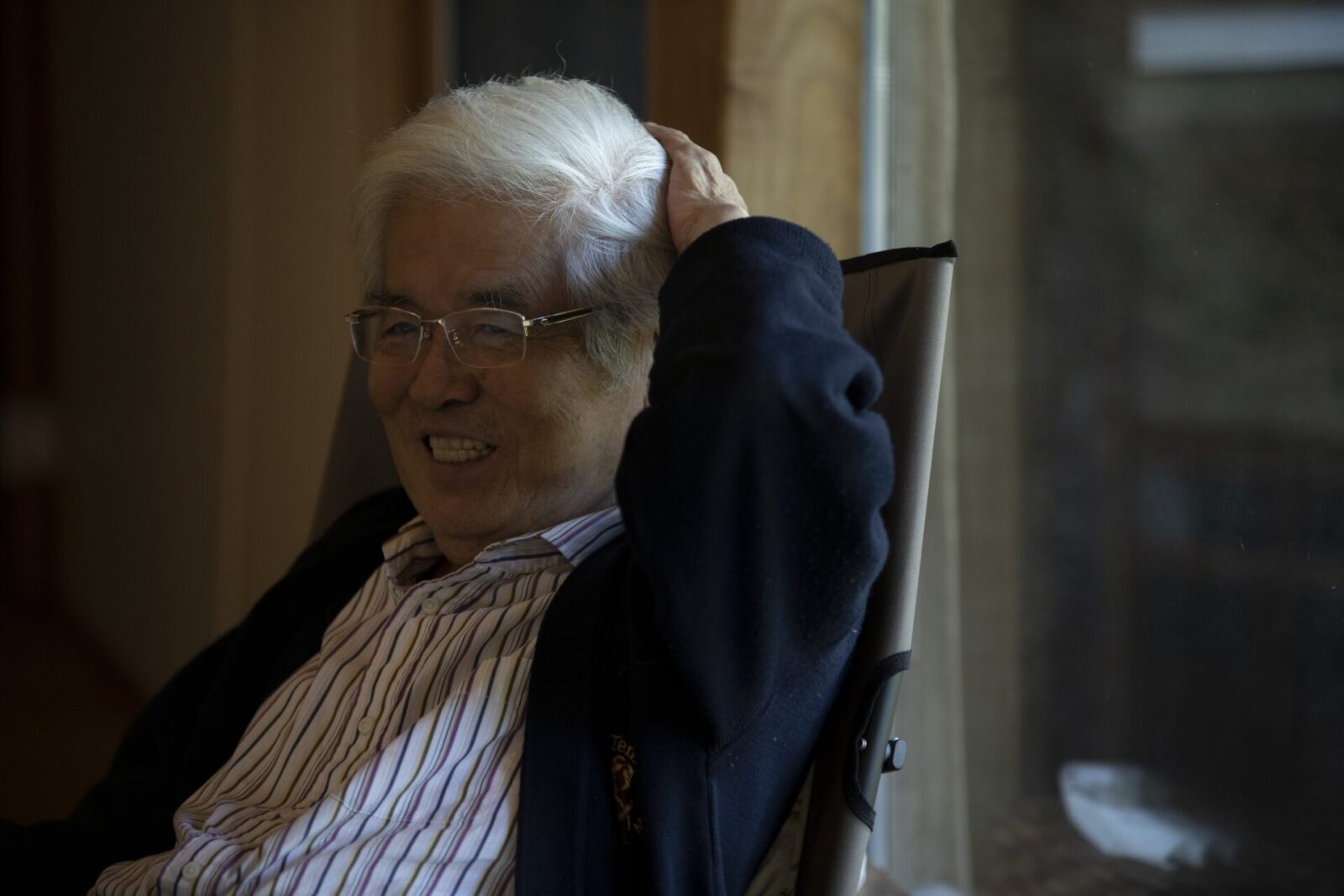
Translation: Sophia Swanson
Reporter for Business Insider Japan. Born in Shinjuku-ku, Tokyo. Taught world history as a high school teacher, worked for Huffngton Post Japan and BuzzFeed Japan before assuming current position. Interests incude economics, history, and culture. Covers a wide range of topics from VTuber to Rakugo and is interested in food culture from around the world.
Editor / Writer. A freelance editor. Born in Yokohama and based in Kyoto. Associate editor of the free magazine “Hankei 500m” and “Occhan -Obachan”. Interests include food, media and career education programs such as “Internships for Adults”. Hobby is paper cutting.
Editor and creator of the future through words. Former associate editor of Huffington Post Japan. Became independent after working for a publishing company and overseas news media. Assists in communications for corporates and various projects. Born in Gifu, loves cats.
